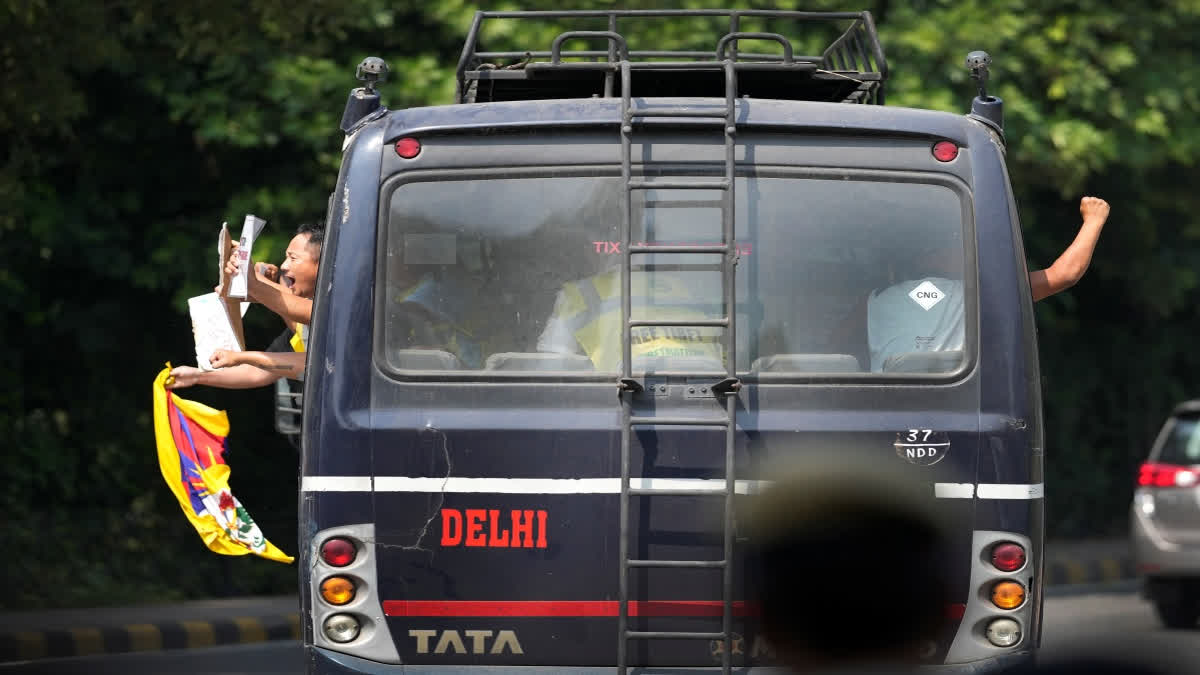New Delhi: Dozens of Tibetans living in India protested outside China's embassy on Tuesday against the human rights situation in their homeland, which China annexed in 1951. Police blocked the protesters from entering the embassy and detained some after chasing them and wrestling them to the ground.
The protest came as China marked its 75th year of Communist Party rule. The Tibetan Youth Congress, which organised the protest, blames China for repressing Tibetan culture.
#WATCH | Delhi: Tibetans in Delhi hold a protest outside the Chinese embassy as China celebrates its national day today.
— ANI (@ANI) October 1, 2024
The protestors were detained by police. pic.twitter.com/m3FFjuMCgh
"We demand the Chinese Communist government to stop the cultural genocide in Tibet. We urge the international community to support the just cause of Tibet," said protester Sonam Tenzin.
The Tibetan government-in-exile in India accuses China of denying fundamental human rights to people in Tibet and of exterminating Tibetan identity.
At least 85,000 Tibetan refugees live in India. The Dalai Lama — their spiritual leader — has made Dharamshala in northern India his headquarters since fleeing Tibet after a failed uprising against Chinese rule in 1959. Representatives of a Tibetan government-in-exile also reside there. The Dalai Lama denies China's claim that he is a separatist and says he only advocates substantial autonomy and protection of Tibet's native Buddhist culture.
Earlier on September 27, the representative of the European Union during the 57th general session of the United Nations Human Rights Council (UNHRC) in a statement, reiterated its concerns about the continuous dire human rights situation in Tibet, highlighting the obligatory boarding schooling, mass DNA sampling and closure of Tibetan schools, The Central Tibetan Administration reported. During the statement, the EU representative also mentioned that the human rights situation continues to grow dire as China has been conducting obligatory boarding schooling and DNA sampling, as reported by civil society organisations.



